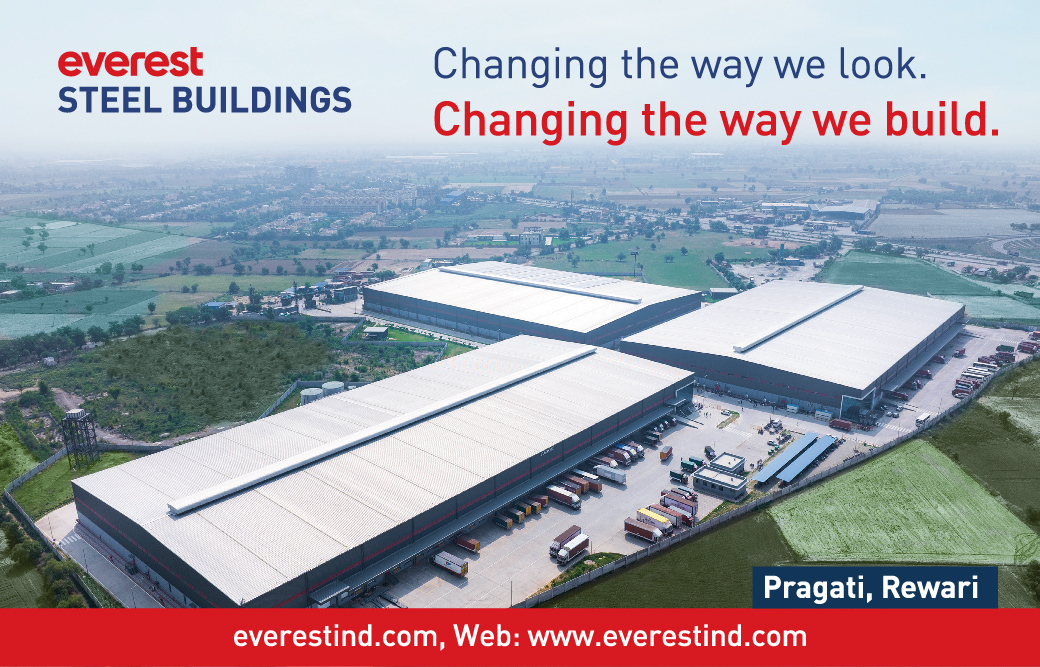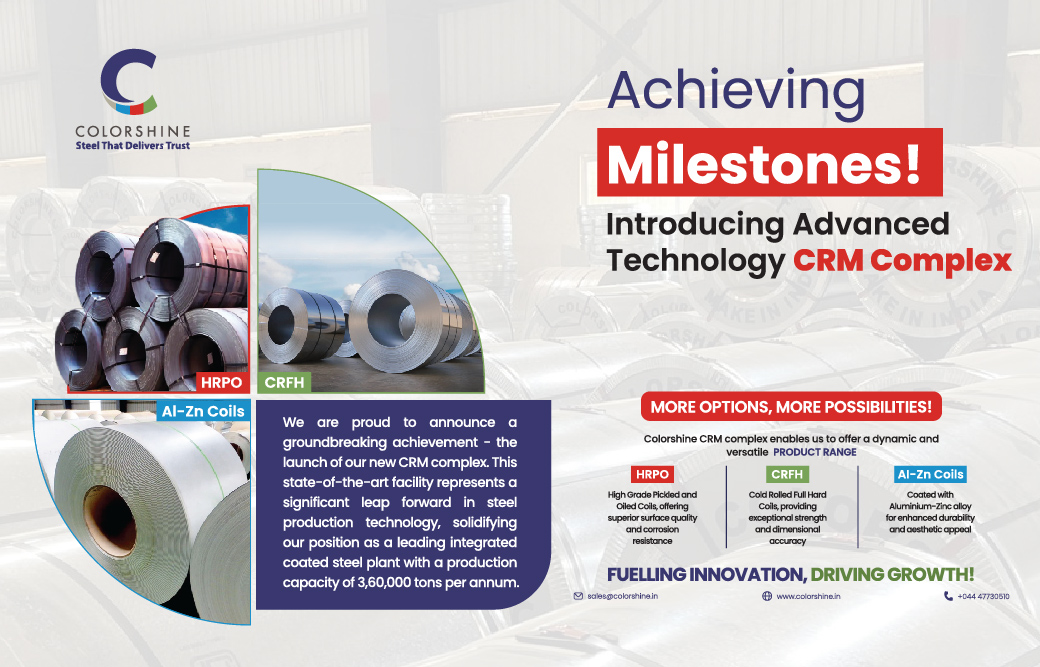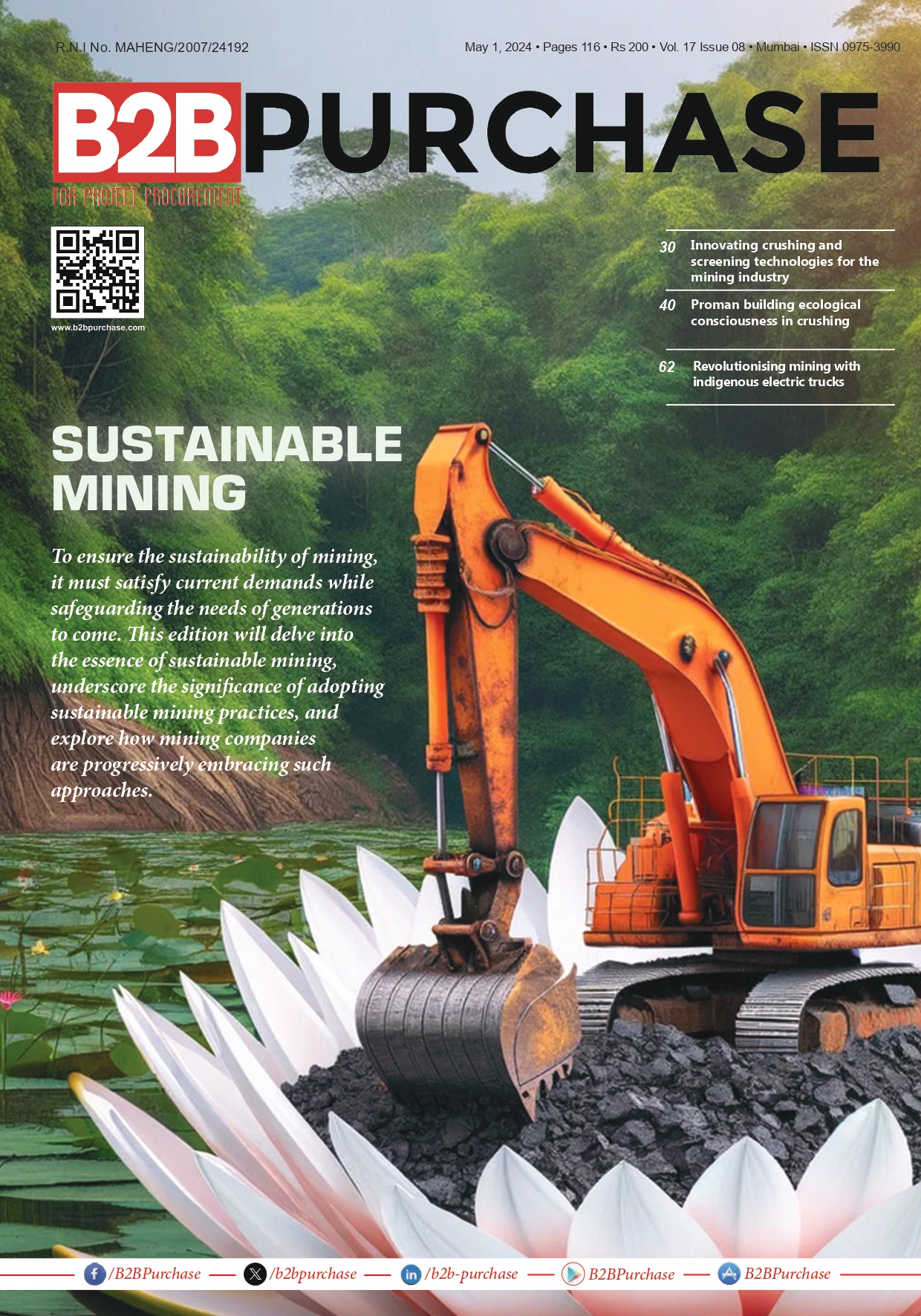Indian CV sector is all set to bounce back in style with big-ticket infrastructure and construction projects picking up.
Indian construction and infrastructure sector has faced a difficult and uncertain period for the past 18 months owing to the Covid-19 pandemic which disrupted businesses globally. And the Commercial Vehicle (CV) sector was no exception either. But every crisis brings an opportunity and with the revival of the Indian economy and vaccination drive gathering momentum, the Indian economy is steadily bouncing back.
Commercial Vehicle sector: On the road to recovery
The CV sector even before the pandemic and lockdown was registering below-par growth across the board. As per the CRISIL Ratings report, which was published last year, the CV makers were already hit by new overloading norms and a slowing economy when the Covid-19 pandemic arrived and sales volume had fallen 29 per cent in fiscal 2020. The resultant sharp slowdown in industrial activity affected the sales of medium & heavy commercial vehicles (MHCVs), which account for two-thirds of industry revenue. The report further stated that Light commercial vehicles (LCVs) might fare better with rural economy and private consumption picking up.
Satyakam Arya, CEO & MD, DICV, opines that despite the slowdown the CV sector is witnessing a resurrection in terms of product sales. He says, “We have been witnessing a recovery in the medium and heavy-duty commercial vehicle segment from September 2020. We expect the Indian medium and heavy trucks industry to register non-linear growth in 2021 with sales of between 150,000 and 200,000 units, up 50-80 per cent over 2020, before returning to a linear growth rate in 2022. The demand is coming from segments like construction and e-commerce.”
In the recently presented Union Budget, a strong emphasis was given on infrastructure and construction projects. India announced the highest ever outlay of Rs 1.18 trillion ($16 billion) for the development of highways and roads in its 2021-22 budget. In lieu of this development Satyakam adds, “The demand for commercial vehicles is directly dependent on the economy. Higher activity in construction, real estate, infrastructure, mining and other sectors that generate payload boosts demand for CVs. The Indian government is actively investing in infrastructure-related projects which have bettered demand for heavy-duty trucks from the construction segment. With the announcement of infrastructure for roadways, we believe the demand for BharatBenz products in the construction tipper segment will improve further. However, we still need to understand the actual infrastructure spent in the state government’s budgets that will help create buoyancy in the market.”
The sale of CV depends to quite an extent on the sentiment of the EPC contractors and big warehouse and logistic operators who use the products. The development of Indian infrastructure has garnered a favourable response from EPC contractors. In an interview with Bloomberg TV, Rohan Suryavanshi, Head – Strategy & Planning, Dilip Buildcon, an EPC company that happens to own the largest fleet of more than 8,000 Vehicles and Machineries said the infrastructure push undertaken by the government will prove to be a catalyst in increasing the growth. India announced the highest ever outlay of Rs 1.18 trillion ($16 billion) for the development of highways and roads in its 2021-22 budget. Rohan says, “We should be looking at 15-20 per cent growth year on-year, which will lead us to double our sales in the next 4-5 years. We should be looking at an increasing order book.”
Vehicle scrappage policy: A boon for the CV sector?
Another important decision made by the government was of vehicle scrappage policy to phase out old polluting vehicles in a phased way. The process will first cover commercial vehicles followed by private vehicles. Under the policy, commercial vehicles will undergo fitness tests after 15 years while personal vehicles would require it after 20 years. This move will directly propel the sales of new CVs.
Nitin Gadkari, Minister for Road Transport & Highways and the Minister of Micro, Small and Medium Enterprises, has termed the policy as a boon and it would lead to a 30 per cent boost to the Indian automobile industry turnover to Rs 10 lakh crore in the years to come.
As per the PTI report, the Union Minister said that people opting for scrapping their vehicles will get some benefit from the manufacturers. And scrapping policy will prove to be a boon for the economy and it will also benefit the automobile sector and help in checking vehicular pollution.
Innovations in the CV sector:
Commercial Vehicle manufacturers around the world are trying to come up with the latest innovations and technologies to make their vehicles environment friendly. With climate change becoming a reality, the onus is also on the CV sector to change and adapt with time.
Recently, DHL Freight, one of the leading road freight providers in Europe and Volvo Trucks have come together to address this change. The duo have partnered to speed up the introduction of heavy-duty electric trucks to be used for regional transport in Europe. The combined effort marks another important step towards climate-neutral transport solutions.
Speaking on the development, Uwe Brinks, CEO, DHL Freight, said, “Our aim is to reduce all logistics-related emissions to zero. Important milestones have already been achieved in meeting this: compared to 2007, our Group’s CO2 efficiency has improved by 35 per cent. However, we need innovative technological solutions and strong partnerships along this journey. I’m confident that our strong cooperation with Volvo Trucks, one of the major truck brands in the world, will support us in achieving our ambitious environmental goals in the road freight sector.”
Stressing about the importance of this measure as also sustainability, Roger Alm, President at Volvo Trucks, added, “The transport business is changing rapidly and to be sustainable is an increasingly important business advantage for many of our customers. We offer effective transport solutions that help make a fast transition to fossil-free fuels such as electricity. We have a longstanding relationship with DHL. Their broad and global expertise in logistics allows us to study the conditions to progress with this technology shift, adapting it to customer needs and their type of transport operation.”
The DHL-Volvo project will start in the first quarter of 2021 and is part of REEL, an initiative with funding from Sweden’s innovation agency Vinnova and the Swedish Energy Agency to promote the transition to electrified freight transport system.
Looking ahead
As we complete the first quarter of 2021, there has been a renewed hope in the industry at large to recapture business momentum and growth. CV sector is a key component in driving India’s growth and for that to happen, timely completion and delivery of road construction, infrastructure, highway projects is paramount.
Cookie Consent
We use cookies to personalize your experience. By continuing to visit this website you agree to our Terms & Conditions, Privacy Policy and Cookie Policy.


















